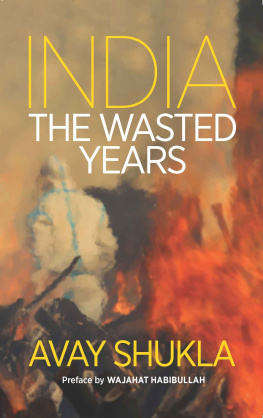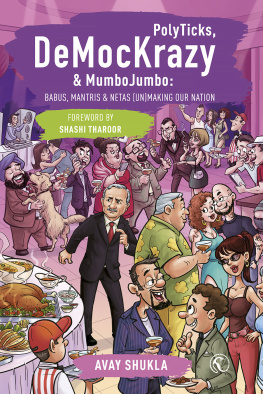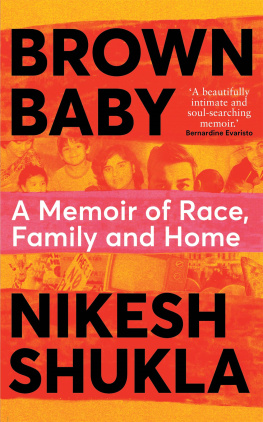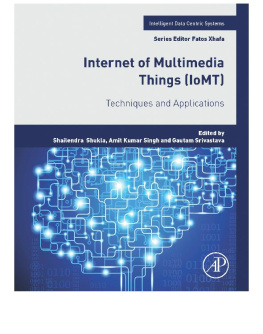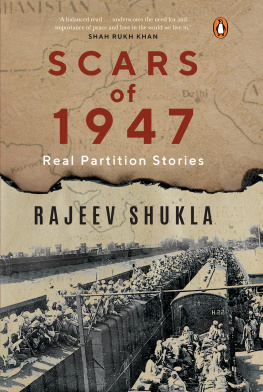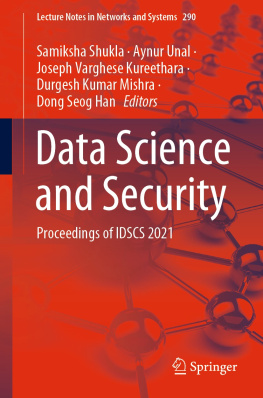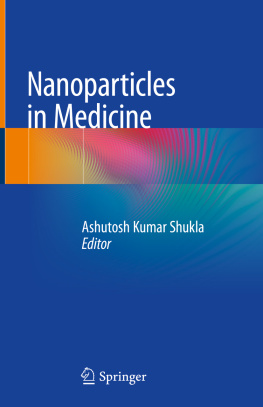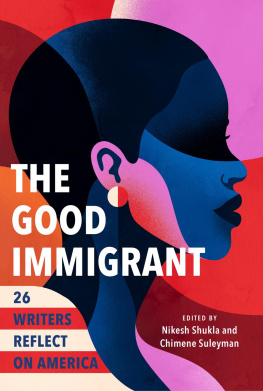Advance Praise for India: The Wasted Years
I can't think of anyone whose blogs have been as interesting and enlightening as Avay Shukla's. Through the darkness of the pandemic he shone a light that revealed the stark and undeniable truth many did not want to recognise or accept. I applaud his honesty and boldness which I am certain the government perceives with fear and despair.
Karan Thapar, television anchor and journalist
Avay Shukla's blogs are not only a pleasure to read, but are keenly awaited by many. His style is simple and yet racy; the subjects he chooses are topical. He mixes humour with sobriety and his occasional tongue-in-cheek remarks actually lay bare the saucy truth. A collection of his blogs, India: The Wasted Years, will not be so for his many admirers. The book is a terrific read, to be chewed and digested. Relax and enjoy!
Madan Lokur, Justice (retired), Supreme Court of India
Avay Shukla's writing is sharp, skilled and surgical. He points out the stark reality that we currently live in and pulls no punches when calling out the collective culpability of those who brought us to this point. Shukla's experience as a bureaucrat and his keen understanding of the functioning of governance arm his criticism. A must-read.
Faye D'Souza, journalist and entrepreneur
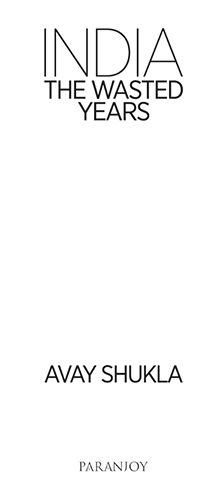
S tarting with the ringing welcome engraved at the entrance of a memorial in Washington DC to what was amongst the greatest human tragedies in the world's troubled history, the Holocaust, Lest We Forget, Avay Shukla's is not a plaintive cry of distress but a defiant challenge to those who would contest the idea of India that has developed over centuries. This idea finds apotheosis in the Constitution of India of 1951.
Shukla's is not a work of history, although it will find place in the annals of India's evolution through the 21st century. It is instead the shout of a wounded civilization. And because the author himself comes from a school of seasoned administrators, the very existence of which service in the 21st century, springing as it does from the anachronism of an imperial-colonial detritus, is, as I write, being questioned, the title of his work inevitably bears upon governance, government, and the course that they chart into India's future, if there is to be any.
It has long been recognized that the structure required to be replaced. But in doing so, surely the most important step must be to develop a consensus on the objectives to be met by refurbished instruments of governance. To begin, each participant in governance must be aware of what is expected of her or him. This brings us to the basic proposition that governance must be distinct from the exercise of power and must comprise security of life and property, both of which are predicated on the security of the nation, as conceived not by the security forces or the bureaucracy, but by its owners, the people of India. Once arrived at through debate and discussion, this conception must then be addressed. That is why we have institutions from Parliament to gram sabhas, to deliberate and, of course, to argue. If this is understood, it is easier to see why perceived needs have not been met by the existing system, even though widely understood, and indeed as Shukla avers, how the years, with argument stilled and a press stifled or simply bought, have been a waste.
This is a series of essays arranged not in chronological sequence but as a series of subjects, each following upon the other, thus making it a cohesive commentary on the times it writes of. Appropriately, it opens with a chapter that analyses the personality on which has pivoted every initiative of a government centered on a zealous Prime Minister, by posing the question: Mr Modi may continue to rule, but can he govern?
Although among the more recent of the essays that make this book, this question in fact resonates throughout the entire work. Jawaharlal Nehru's political quest had convinced him that: The questions that a country puts are a measure of that country's political development. Often the failure of that country is due to the fact that it has not put the right question to itself.
The author's opening question is only partly answered in the author's own conclusion to his introduction with the words: We must never forget or forgive.
Shukla is unable to find a saving grace in any of the decisions taken by the government, thus giving his book its title and leaving the reader by the end of the book with much food for thought. The author roundly accuses Modi of the destruction of India, a process which he goes on to trace in three phases. This will inexorably generate public discussion amongst what Nobel Laureate Amartya Sen would characterise as the argumentative Indian. This book is then a contribution to what is vital to the fabric of democracy. The reader will answer whether it is a salve or a salvo.
In the essays that follow, Shukla puts bureaucrats, some long considered administrators of promise, to pitiless scrutiny some of whom he seeks to expose as charlatan, currying favour. Cited as example are the policy recommendations of the government's think tank Shukla refers to it as the stink tank the NITI Aayog, that has supplanted the former Planning Commission. Shukla's comment on India's development (vikas): It's not just that our economy has shown a negative growth of 23% or that the unemployment rate has never been higher in independent India or that the GST (goods and services tax) has been a failure or that demonetisation has knocked the bottom out of our small-scale sector which accounts for 80% of non-agriculture employment. Other indicators of democracy or social well-being have taken an even bigger hit in the past six years.
It is for the reader to make a judgement, but Shukla is uncompromising in his analysis, studiously citing singular failures, without silver lining. This, he substantiates with facts on the country's standing in the world, with what he considers a failed foreign policy based on various examples cited, but particularly on human development indices, which were never ideal but always upwardly mobile until the present downslide.
Also cited are cases of bureaucrats who have stood up. There are district magistrates cited who have succumbed to pressures of politics or even caste, but also bureaucrats who have acted as they were trained to do, as public servants in the best interest of the society they serve. He has examined the prospects of implementing a Universal Basic Income programme in an essay of 2017 providing compelling reasons to confirm that its time has come. Had the author, based on his deep understanding and experience, which has brought question to the viability of elitist bureaucratic structures in a democratic society, also posited on what it might have been, this would have added weight to his opinion. On the other hand, he has argued tellingly of the citizens right to know, which he considers dangerously compromised with what he describes as the political subjugation of the institutional framework. In this context he has addressed in a forthright manner the brutally limited enjoyment of what have become fragile Constitutional rights by India's citizenry.
India's democratic evolution as reflected in The Wasted Years repeatedly brings to mind the remarks of Justice K K Mathew of the Supreme Court of India on behalf of the bench in the pathbreaking State of Uttar Pradesh versus Raj Narain and Others judgment of 1975, which are oft quoted in judicial circles while debating the rule of law:
In a government of responsibility like ours, where all agents of the public must be responsible for their conduct, there can be but few secrets. The people of this country have a right to know every public act, everything, that is done in a public way, by their public functionaries. To cover with veil secrecy the common routine business, is not in the interest of the public.
Next page
